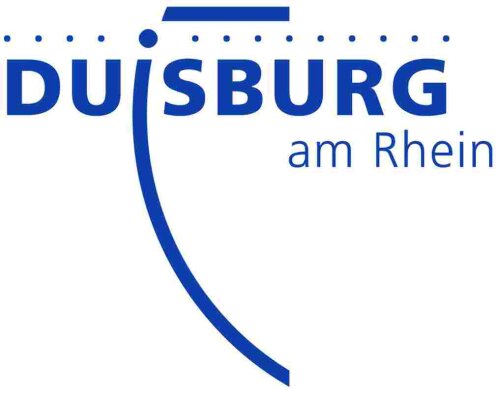Best Collaborative Law Lawyers in Duisburg
Share your needs with us, get contacted by law firms.
Free. Takes 2 min.
Free Guide to Hiring a Family Lawyer
List of the best lawyers in Duisburg, Germany
About Collaborative Law in Duisburg, Germany
Collaborative Law in Duisburg, Germany, offers a unique approach to resolving legal disputes, particularly in family law. It involves a cooperative process where both parties and their respective lawyers work together to reach a mutually beneficial settlement without going to court. This method emphasizes open communication, transparency, and respect to resolve issues amicably. Duisburg, known for its comprehensive support for progressive legal approaches, has embraced Collaborative Law as a way to mitigate the adversarial nature of traditional litigation.
Why You May Need a Lawyer
Individuals may seek out Collaborative Law services for numerous reasons. Most commonly, it is used in divorce cases where both parties wish to avoid the hostility of court battles. It is also useful for resolving disputes related to child custody, alimony, and the division of property. Moreover, businesses may employ Collaborative Law strategies for contract disputes or partnership dissolutions, aiming for solutions that preserve relationships and encourage future collaboration.
Local Laws Overview
Duisburg, like the rest of Germany, follows a legal framework that supports alternative dispute resolution methods, including Collaborative Law. German family law, governed largely by the Bürgerliches Gesetzbuch (BGB), allows for out-of-court settlements in family disputes, offering more flexible solutions than strict adherence to the predefined legal code. Collaborative Law aligns with these provisions by offering a structured yet adaptable framework for negotiation. Local courts in Duisburg are generally supportive of agreements reached through this process, as long as they respect legal standards and protect the interests of vulnerable parties, such as children.
Frequently Asked Questions
What exactly is Collaborative Law?
Collaborative Law is a legal process where parties and their lawyers commit to resolving disputes outside of court through cooperative techniques, maintaining open and honest communication throughout.
How does it differ from mediation?
While both aim for amicable resolution, mediation involves a neutral third party to facilitate dialogue, whereas Collaborative Law involves both parties having their own legal representation throughout the process for guidance and advocacy.
Is Collaborative Law recognized in Duisburg courts?
Yes, agreements reached through Collaborative Law are recognized by Duisburg courts, provided they comply with the existing legal framework and guidelines.
Can Collaborative Law be used for business disputes?
Yes, it can be effectively applied to dissolve partnerships, contract disputes, and other business conflicts, promoting a collaborative outcome that preserves working relationships.
What happens if the process fails?
If Collaborative Law fails, the parties may proceed to litigation. However, the lawyers involved in the collaborative process typically agree to withdraw, and the parties must seek new legal representation for court proceedings.
How can I find a collaborative lawyer in Duisburg?
Collaborative lawyers can be found through local bar associations, legal directories, or by contacting law firms that specialize in family or business law with a focus on alternative dispute resolution.
Are there confidentiality protections in Collaborative Law?
Yes, confidentiality is a cornerstone of the Collaborative Law process. All discussions and documents related to the collaborative process are typically protected and cannot be used in court if the process does not result in a settlement.
Is Collaborative Law cost-effective?
Often, yes. By avoiding lengthy court proceedings, parties can save on legal fees and associated costs. Additionally, the emphasis on communication and efficiency can lead to quicker resolutions.
Can Collaborative Law be used in international cases?
Yes, it can be applied to international family disputes, especially those involving custody or property division, though it may require coordination with legal representatives in other jurisdictions.
What are the key benefits of choosing Collaborative Law?
The primary benefits include a less adversarial process, faster resolution, potential cost savings, and the preservation of relationships, which is particularly important in cases involving children or ongoing business partnerships.
Additional Resources
Those interested in Collaborative Law in Duisburg can contact the local chapters of the German Bar Association for resources or seek assistance from the Federal Chamber of Lawyers (Bundesrechtsanwaltskammer). Additionally, local family courts may provide information on alternative dispute resolution services.
Next Steps
If you require legal assistance in Collaborative Law, consider consulting a qualified collaborative lawyer. This initial consultation will provide insight into how the process could be tailored to suit your specific needs. You may also want to attend workshops or seminars offered by local legal bodies to familiarize yourself with the process. Always ensure your lawyer is accredited and has experience in Collaborative Law to ensure the best possible outcome for your situation.
Lawzana helps you find the best lawyers and law firms in Duisburg through a curated and pre-screened list of qualified legal professionals. Our platform offers rankings and detailed profiles of attorneys and law firms, allowing you to compare based on practice areas, including Collaborative Law, experience, and client feedback.
Each profile includes a description of the firm's areas of practice, client reviews, team members and partners, year of establishment, spoken languages, office locations, contact information, social media presence, and any published articles or resources. Most firms on our platform speak English and are experienced in both local and international legal matters.
Get a quote from top-rated law firms in Duisburg, Germany — quickly, securely, and without unnecessary hassle.
Disclaimer:
The information provided on this page is for general informational purposes only and does not constitute legal advice. While we strive to ensure the accuracy and relevance of the content, legal information may change over time, and interpretations of the law can vary. You should always consult with a qualified legal professional for advice specific to your situation.
We disclaim all liability for actions taken or not taken based on the content of this page. If you believe any information is incorrect or outdated, please contact us, and we will review and update it where appropriate.








